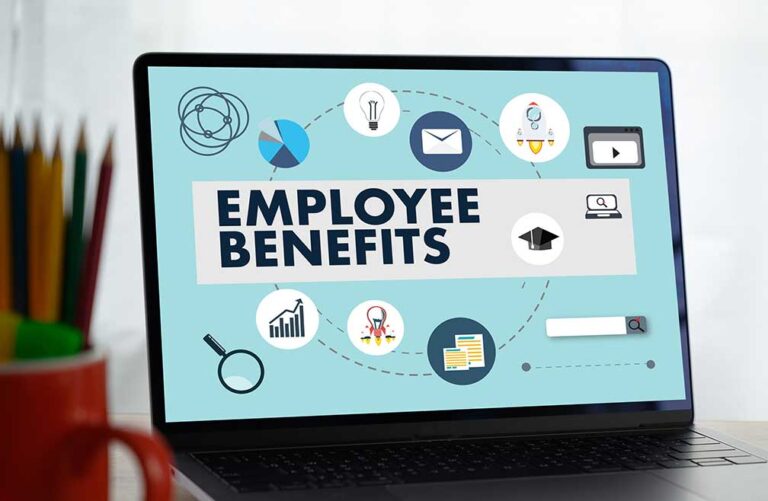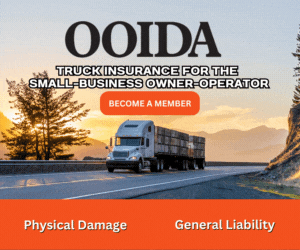Truck owners are usually aware of the costs associated with being in business for themselves.
Those expenses go far beyond fuel and maintenance to keep the truck running. Registrations, insurance, permits, taxes and more consume a portion of any revenue earned. Peripheral expenses, such as accounting, factoring and legal services, also must be taken into account.
However, there’s one area in which many owner-operators are woefully inadequate when it comes to business planning and budget allotment — personal benefits.
Company drivers often have access to benefits like life insurance, including supplemental insurance for their spouse; health insurance that may include dental and vision; short- and long-term disability plans; and some form of retirement savings that can include a company match, profit sharing or other forms of contribution.
In addition, drivers who are directly employed by a carrier don’t have to worry about income tax withholdings. State and federal income taxes are deducted as they are earned, so these drivers don’t need to come up with lump-sum payments at tax time. The employer portion of Social Security and Medicare tax represents another 7.65% increase in income, paid to the government on the employee’s behalf.
Unfortunately, many owner-operators don’t think beyond the pay numbers when they start their businesses. In fact, too many don’t even plan for pay, simply treating whatever’s left over after trucking expenses as their salary. They may not consider the value of the benefits they and their families are NOT receiving due to their self-employment status.
In some cases, the truck driver’s spouse is employed and can provide insurance benefits for the family. In that situation, the driver can omit that responsibility from the plan for the business. In too many other cases, however, the family simply goes without needed benefits.
Insurance
These days, health insurance is a very valuable benefit. Even a minor surgical procedure that doesn’t require a hospital stay can cost more than a driver’s annual income. Treatments for cancer or other serious diseases can result in a massive debt for a family. Even routine doctor visits can be costly, especially if lab work is ordered.
Health care costs have greatly increased, and premiums for health insurance have skyrocketed, too. Thanks to the Affordable Healthcare Act passed in 2010, sometimes called “Obamacare,” subsidies are available to help Americans cover the cost of health insurance. The website healthcare.gov, often called the Insurance Marketplace, provides information on how to enroll in an insurance plan, as well as discounted pricing that may be available in the area of your residence. Depending on your personal income, these insurance premium costs can be substantially lower than those on the open market.
The plans available through the Marketplace can differ in price, depending on the deductibles and co-pays selected. Some plans offer dental and vision coverage, too. Of course, plans and pricing can differ by state.
Life insurance is another important benefit for families.
Trucking is listed by the Department of Labor as one of the most dangerous jobs in America, yet it’s a popular job because of the income potential.
If the driver dies, families can be devastated by the loss of income. Adding funeral expenses, including transport of the body from another state, only adds to the financial burden. Life insurance is often provided free of charge or at a discount for company drivers, but owner-operators generally have to find their own provider and plan.
Life insurance is a benefit that every breadwinner should have to help provide for their family in the event of their death. The cost of life insurance can vary widely, depending on the type and amount of insurance.
Term life insurance is generally the cheapest because the buyer only pays for the coverage. Whole life insurance costs more, but it serves as an investment, returning premiums and more to the buyer at maturity. Other plans may include aspects of both, providing payment in the event of death as well as a savings function.
Disability insurance pays a portion of the driver’s income when he or she can’t work due to illness or injury. Mandatory Worker’s Compensation laws provide basic coverage for company employees, but owner-operators are usually required to pay for their own worker’s comp, or a similar policy known as Occupational Accident (Occ-Acc). Additional disability coverage is available, as well as supplemental policies that pay cash amounts directly to the insured on a per-day or per-injury basis, regardless of the amount of the medical bill.
Retirement savings
One area owner-operators often ignore is retirement savings. Few companies these days offer pensions to their employees, but many offer savings plans, such as 401(k) options that include some form of company match for amounts the employee saves.
Owner-operators have access to a number of options to help save for the future while reducing their tax liability today.
An Individual Retirement Account (IRA) is one of the most common options, and it can be set up as a “Roth” or “traditional” plan.
Traditional IRA plans are funded with pre-tax dollars. This means contributions are subtracted from your income, reducing your tax liability in the current year. You’ll need to pay income tax when you withdraw the money, but by then your tax rate may be much smaller due to reduced income.
A Roth IRA, on the other hand, is funded with income that has already been taxed. It won’t save you tax dollars now — but it won’t be taxed as highly in the future.
There are even solo 401(k) programs you may be able to invest in.
Self-employment tax
One final benefit we need to address isn’t actually a “benefit” now — but it could be at retirement time. That benefit is self-employment tax.
With Social Security and Medicare tax, the employer and employee each pay half the cost. On the other hand, those who are self-employed pay both halves, adding up to 15.3% of income, in addition to income tax. Owner-operators who don’t save up for this tax are often shocked when the amount is added to their income tax bill at quarterly or annual payment time.
Cliff Abbott is an experienced commercial vehicle driver and owner-operator who still holds a CDL in his home state of Alabama. In nearly 40 years in trucking, he’s been an instructor and trainer and has managed safety and recruiting operations for several carriers. Having never lost his love of the road, Cliff has written a book and hundreds of songs and has been writing for The Trucker for more than a decade.










